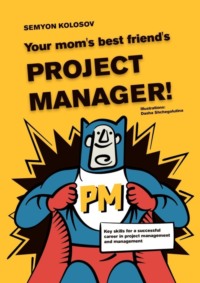Your mom’s best friend’s project manager! Key skills for a successful career in project management and management

Добавить В библиотекуАвторизуйтесь, чтобы добавить
Добавить отзывДобавить цитату
Your mom’s best friend’s project manager! Key skills for a successful career in project management and management
Вы ознакомились с фрагментом книги.
Для бесплатного чтения открыта только часть текста.
Приобретайте полный текст книги у нашего партнера:
Всего 10 форматов
Авторизация